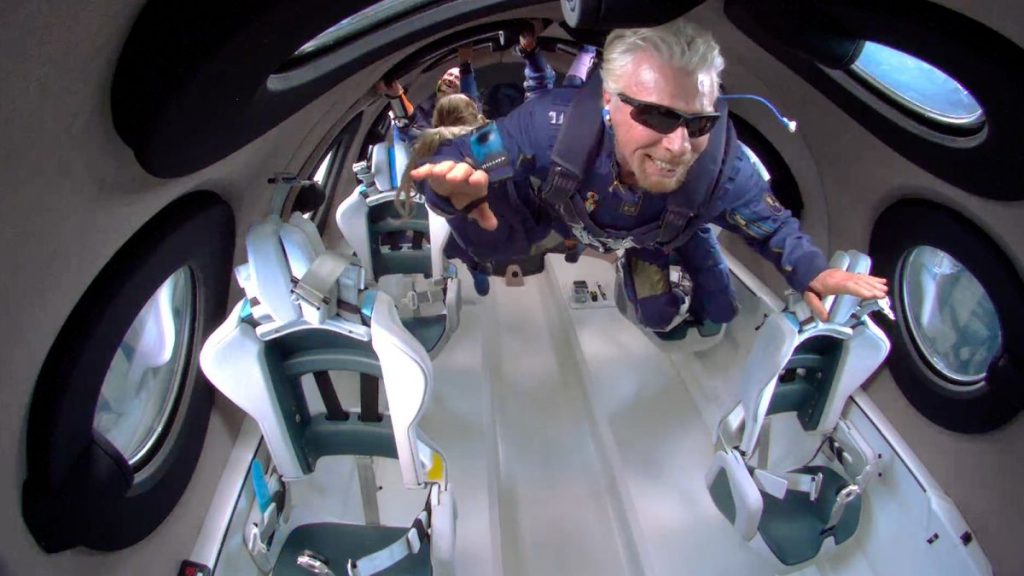Suborbital space tourism provider Virgin Galactic announced a deal Wednesday (July 6) to build a new set of carrier planes.
Virgin Galactic has contracted the Boeing subsidiary Aurora Flight Sciences to build two new “motherships” that will be rated to fly as many as 200 times a year, the companies announced in a Virgin press release (opens in new tab).
Most terms of the deal, such as the value of the contract and any U.S. Federal Aviation Administration approvals, were not disclosed. But Aurora has pledged to have the new carrier aircraft ready by 2025, roughly two years after Virgin Galactic is slated to begin commercial passenger operations.
In photos: Virgin Galactic’s 1st fully crewed spaceflight with Richard Branson
“Our next-generation motherships are integral to scaling our operations. They will be faster to produce, easier to maintain and will allow us to fly substantially more missions each year,” Virgin Galactic CEO Michael Colglazier said in the same statement.
Virgin Galactic aims to reach 400 flights a year using the two new motherships and a fleet of new “Delta-class” space planes, each of which is expected to fly once a week. The Wednesday statement said those spaceships should enter service in 2025 with “revenue payload flights.” (Virgin Galactic has also said that the Delta-class space planes should be ready to fly paying customers in 2026.)
Virgin Galactic completed its first fully crewed spaceflight almost exactly one year ago, on July 11, 2021, with founder Richard Branson on board. Branson and his crewmates flew on the company’s VSS Unity space plane, which was lofted by the carrier aircraft VMS Eve.
The company hasn’t conducted a suborbital flight since then; it opted to perform maintenance and upgrade work on Unity and Eve, the only operational carrier plane and spaceship, respectively, currently in Virgin Galactic’s fleet.
Virgin Galactic briefly reopened ticket sales twice to customers since the July 2021 flight, boosting the per-seat price from $250,000 to $450,000. As of November 2021, Virgin Galactic had a reported 700 or so customers in its pool, and earlier this year it reported the wait list to be 800.
Virgin Galactic employs an air-launch strategy, in which a space plane is hauled aloft under the wings of a carrier aircraft. The duo fly together to an altitude of about 50,000 feet (15,000 meters), at which point the space plane drops free and powers its own way to suborbital space using its onboard rocket motor.
VSS Unity has made it to space four times during test flights to date. The company recently announced the next suborbital flight is expected in 2023, about three months later than previously expected due to “supply chain and labor constraints.”
Virgin’s main competitor in the suborbital space tourism industry is Blue Origin, which is run by Amazon founder Jeff Bezos. Bezos flew on Blue Origin’s first-ever crewed flight on July 20, 2021, along with his brother and several other passengers. Blue Origin has now flown people to the final frontier five times, most recently on June 4. The company has not yet disclosed its ticket prices.
Follow Elizabeth Howell on Twitter @howellspace (opens in new tab). Follow us on Twitter @Spacedotcom (opens in new tab) or Facebook.

